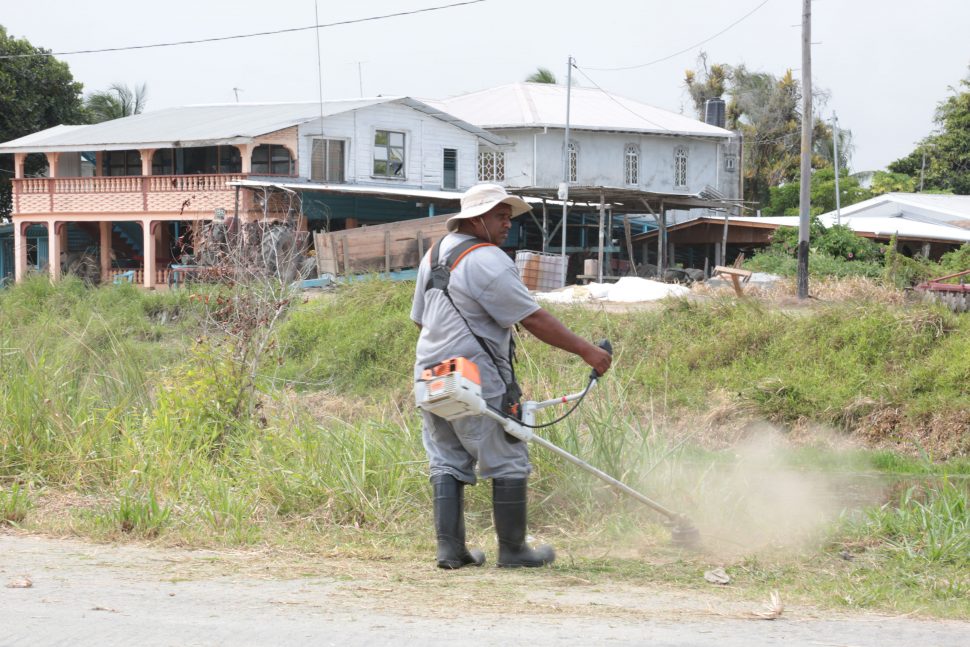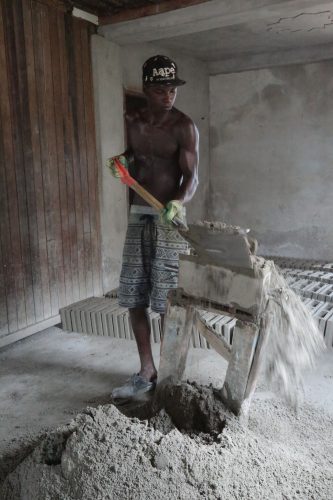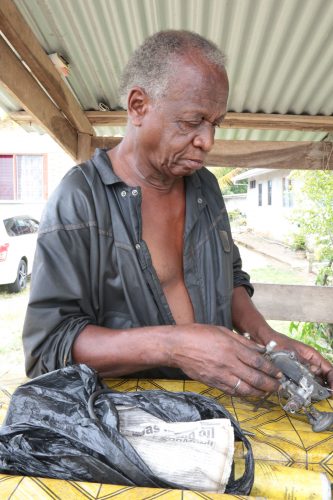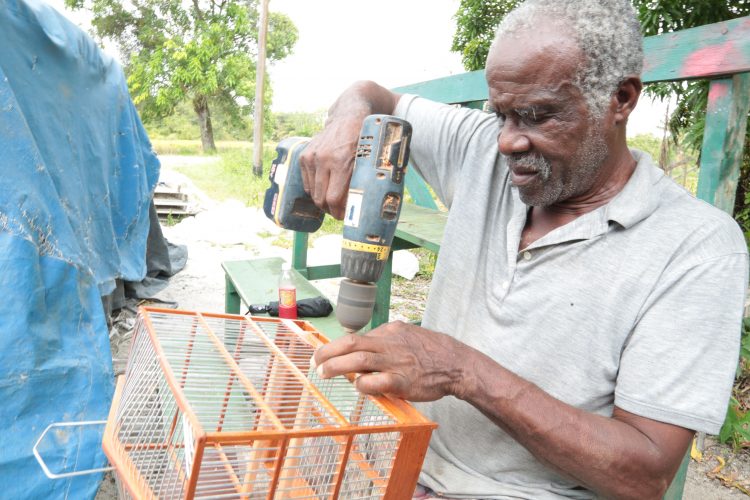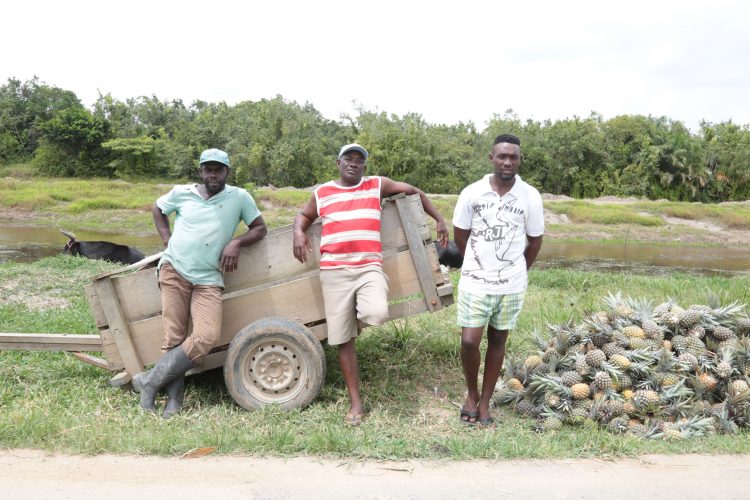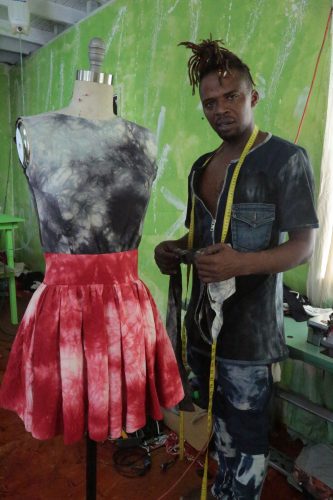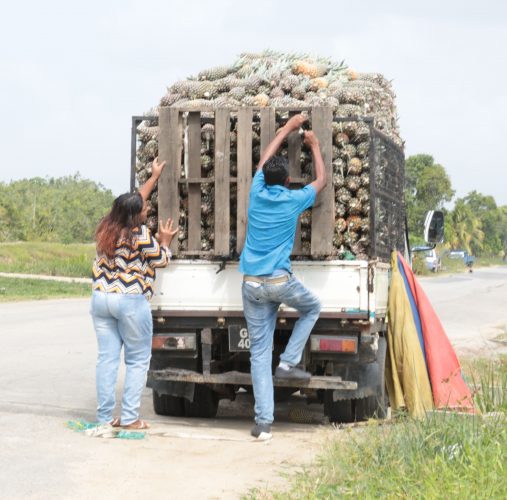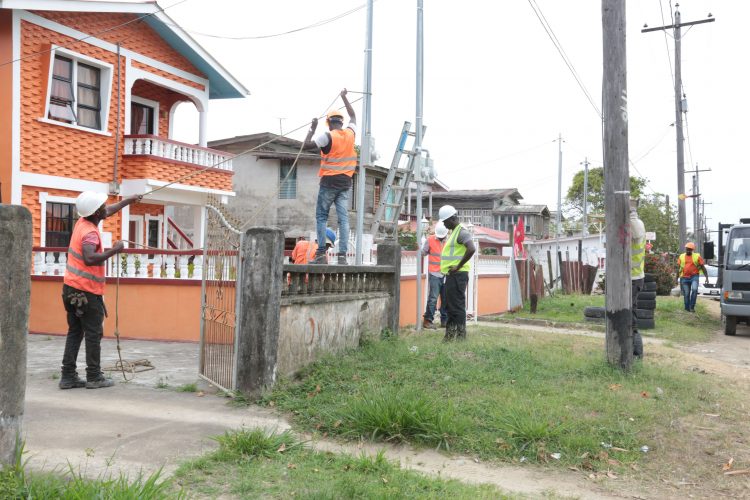L’Oratoire is a beautiful village in Canal Number One, on the Polder’s road. Fruit trees of all kinds line the parapets including coconut, cashew, mango and guava. When I visited the village was bustling with people tackling their respective jobs.
The village is home to more than 60 residents, one of them being Dexter Brisport. He was under a shed at the side of the road working on a carburetor. Brisport was born in Linden, where he lived in Christianburg and Retrieve for almost half of his life. However, when he moved to L’Oratoire, he was no stranger to the area as he had spent many of his holidays at his grandparents’ home in Canal Number One since he was five. He recalled looking forward to having access to fruits when he was a boy, specifically mangoes, as Linden did not have much of those.
His early adult life saw him working at the Demerara Bauxite Company in Linden as a mechanic, a job he did all his life. Nowadays he goes to Parfait Harmonie seven days a week for work, including holidays, because that housing scheme is big and there is always work there.
His first years at L’Oratoire, he recalled using mainly boats for transport, although there were a few cars that traversed the road every two hours.
Formerly, the community was sustained strictly on farming, but times have changed, and many persons work outside of the village or in the city.
One of Brisport’s desires is to see a community centre ground constructed for the youths as they have to go to the beginning of Canal Number One at La Heureuse Adventure whenever they want to play.
John Miggins sat on a bench in his yard in the shade of a tree making a new bird cage. He hails from Beau Voisin, the village before L’Oratoire, but changed residence in 1971 after getting married.
Miggins, a farmer also, plants hard yam and cassava for personal use. For his vegetables he relies on the mobile shops that pass along the public road. Fruits are usually available as fruit trees are abundant in the area.
The main issue he is worried about is thieves breaking into homes, noting that his neighbours were robbed along with other persons in the village. He requests that the police patrol the area more often at nights.
Remembering the early days, Miggins told of the wooden bus that ran the route from Vreed-en-Hoop to Canal. The bus, he said, had 50+ seats. Many of the persons who took the bus were farmers heading to the markets in Georgetown, so it was always packed with produce.
In his earlier years, Miggins was a mechanic with the Guyana Police Force for 10 years, having joined the force in 1971. After he left, he returned home and began working on the farm cutting sugar cane, later he drove a taxi. One of his longest jobs, however, was gold mining which he did until he was 60. Making bird cages trumps them all.
“I been making bird cages since I was a boy about 14. I didn’t have a drill then, so I used a bicycle spoke which I sharpened to use to bore the holes,” he said. “At that time, we never used to put lacquer on the cages. The ordinary cages were made of binding wire or galvanized wire and coconut branches. I use aluminium wire now and cedar.
“At the time I began making cages, I was attending British Guyana Educational Trust in Charlotte Street. My principal at the time was the Speaker of the House of Assembly, a man called A P Alleyne. Forbes Burnham was the Prime Minister and the President was Arthur Chung. …They had a coalition government with UF [United Force] member Peter D’Aguiar. During that time, they had an 80-day strike in 1962. We were home. We couldn’t go to school because you can’t cross with the ferry; the ferry strike. There was no harbour bridge then. “As I was home and had nothing to do, I decided to start making bird cages. I learnt off my own. We used to make the cage with the coconut branch and the busy-busy grass in the canal and then they started importing salt fish in box, which was a thin box and I started using that.
“I had a lil’ plane that I used to plane it with, then sand it by hand to level it. I sliced off part of my finger using the plane and almost cut off my finger using an electric saw. As time go on, they started making cages out of cedar; a very expensive wood. My first set of cages I sold for $1.25 and now I sell them for $6,000.
“I have a lot of young boys who come and ask for me to teach them, but I don’t have that patience to teach. To do this you have to love doing this. It takes a lot of patience already to do this.”
Miggins used to make five cages a week, but now because he has aged, his work has slowed. When it rains, he is taken up with cage making and it had rained earlier the day I spoke with him. But on sunny days, Miggins is often away in the backdam.
Keith Reedon stood braced against a bull cart with his cousin and son; nearby was a pile of pineapples waiting to be sold. They had a short while before returning to their farms and were resting while they looked on at the Guyana Power Light workers trying to straighten electricity poles.
Reedon was born and raised in Bordeaux, a nearby village. He settled in L’Oratoire in 2001. A former student of West Demerara Secondary School and the Guyana Technical Institute, Reedon chose farming as this is what he loves doing most. He plants pineapples which he sells wholesale. He plants a small amount of ground provision for personal use.
He said he had been farming with his parents since he was a boy. They planted sugar cane, ground provision and citrus. It has been 34 years since he took up farming.
“At first, it used to be mainly farming here, but now things have slowed down a bit. Not many of our youths today want to get into farming. Most of the people here are hardworking. We have a few youths who don’t want to work but they have their particular work and time when they would work,” Reedon said.
Turning to infrastructure, he said: “Whenever we have a hole in the road the most they do is patch it. We need our road fixed and we need streetlights also.”
As regards robberies in the area, the man said these happen from time to time adding that he realises that many times the robbers choose to rob houses with louvre windows where they can easily slip one out. He has never been a victim of robbery. More police patrols in the area, he said, might make a difference, but then it might not, as with the open backdam running for more than a mile, thieves can easily escape.
Comparing L’Oratoire to Georgetown, Reedon said, “The city is more congested. Being in the country you’re more relaxed. You can enjoy the breeze and you work when you want to.”
Some of the recent developments in L’Oratoire include the upgrading of electricity and a better flow of water.
